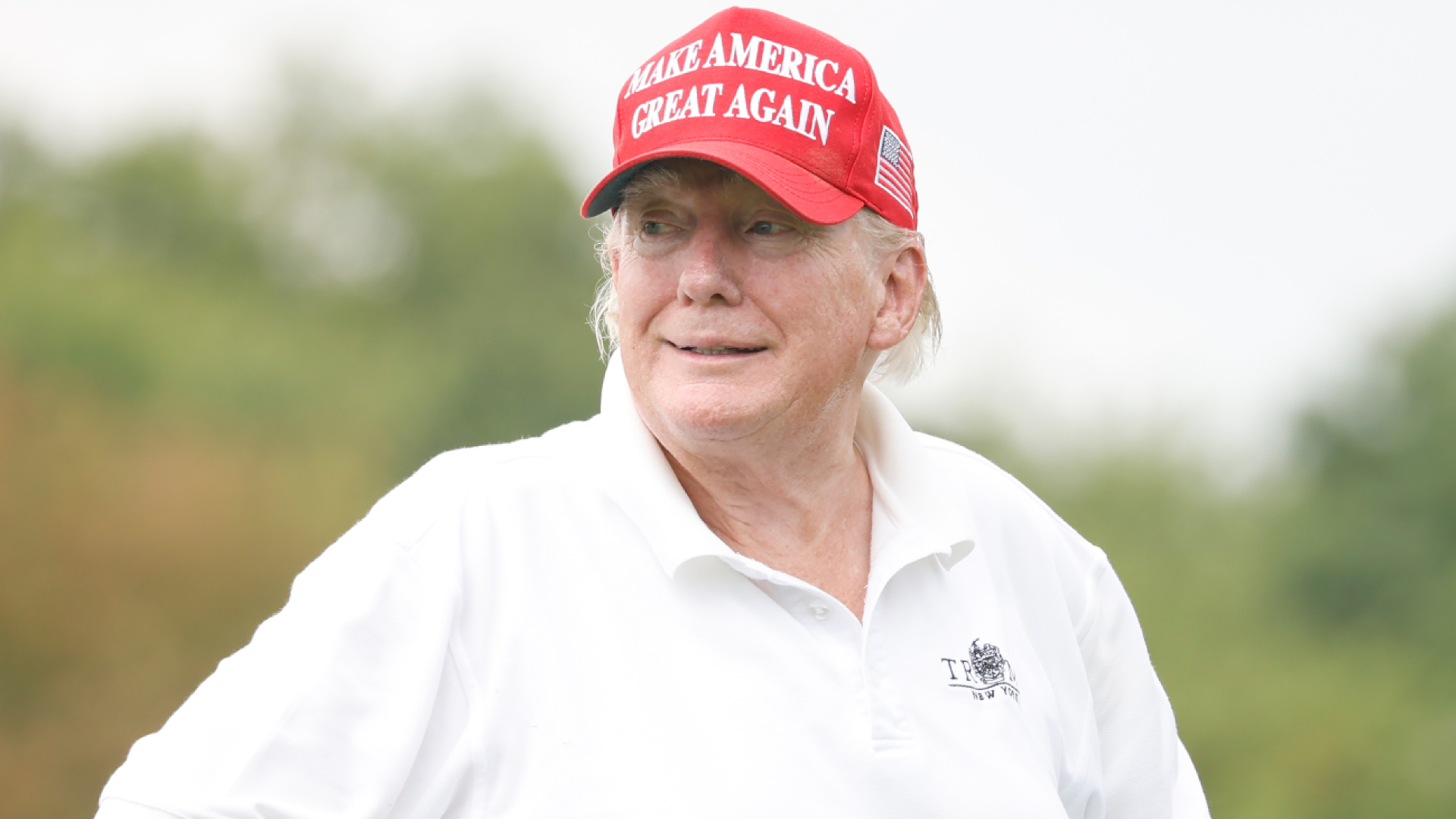Actually, NOT Prosecuting Trump Is the ‘Banana Republic’ Move

Former Pres. Donald Trump at the pro-am prior to the LIV Golf Invitational - Bedminster on July 28, 2022, in New Jersey.
(Cliff Hawkins/Getty Images)
Ever since the Department of Justice executed a search warrant to seize official government documents which Donald Trump was storing at a Florida hotel resort, the ex-president has offered a number of shifting defenses for his behavior. One constant in his ever-changing public relations strategy, however, has been to claim that a law enforcement execution of a warrant against a former chief executive is something that supposedly only happens in a “third world country, a banana republic.” He’s completely wrong.
Over the decades, in fact, a number of wealthy, industrialized countries have not only served warrants on their presidents and prime ministers, in many cases, they have jailed them as well. While no former American president has been sentenced to prison, history shows both that the U.S. is one of the very few large nations not to have jailed past executives for crimes and that a refusal to prosecute presidential misconduct is actually the “banana republic” move.
France is the most prominent major country to have conducted criminal trials of past executives. Just last year, former president Nicolas Sarkozy was convicted for illegally exceeding campaign spending limits in a 2013 race, a verdict which carried a one-year home confinement sentence. He has not served his time yet since his appeal of the case is pending.
The campaign finance trial was Sarkozy’s second conviction of that year. In March 2021, he was found guilty of trying to bribe a judge in 2014 and was sentenced to three years in jail with two of them suspended. He has also appealed the verdict.
Sarkozy is not the only former top French government official to have been recently convicted of crimes. In 2020, his former prime minister, François Fillon, who was running his own campaign for the presidency, was convicted along with his wife of embezzling government money to give her and two of their children nonexistent jobs. Their verdicts were upheld on appeal but both were given suspended sentences.
Elsewhere in the world, Hong Kong made headlines in 2017 for convicting and sentencing former Chief Executive (Hong Kong’s highest office) Donald Tsang for illegally failing to disclose that he would be renting a penthouse from a television executive who was trying to renew his company’s license. It was one of a number of accusations Tsang faced as chief executive of accepting favors from private business. In his last month in office, he tearfully apologized for his conduct but continued to appeal his case, eventually prevailing on a technicality about a judge’s jury instructions.
Hong Kong is one of several Asian nations which have recently prosecuted or even jailed top politicians. Former Japanese Prime Minister Kakuei Tanaka was one of several politicians convicted in a 1970s scandal in which U.S. aerospace company Lockheed Martin was accused of bribing government officials in several different nations. Tanaka continued to appeal his conviction up until his death in 1993.
More recently, two of South Korea’s former presidents, Lee Wan-koo and Lee Myung-bak, were convicted and sentenced for corruption. So were two prime ministers, Han Myeong-sook and Choi Kyoung-hwan.
Israel is another prominent world nation which has seen a top executive serve jail time. Ehud Olmert, a veteran politician who had been dogged by corruption allegations for decades, was indicted for alleged corruption while serving as prime minister. Olmert was subsequently convicted in another case and sentenced to 27 months in prison (he was released in 2017 after serving 16 months). Former Israeli prime minister Benjamin Netyanyahu has been on trial since 2020 for bribery and other corruption allegations.
While the idea of an ex-president having to serve jail time is unprecedented in the United States, the reality is that there are so many other former heads of state worldwide who have been convicted and jailed for crimes that Wikipedia has a dedicated page listing them. The U.S. surely would have been one of the countries on the list if then-Pres. Gerald Ford had not pardoned his predecessor, Richard Nixon, an act which set an unfortunate precedent of allowing presidents to evade the justice system.
During his term in office, Trump was notorious for trying to use the presidency for his personal advantage, seeking to hold official events at his hotels and golf resorts, appointing his daughter and son-in-law to top advisory roles despite them having no political experience, and reportedly destroying or keeping government documents routinely.
As president, Trump benefited from the Department of Justice’s longstanding internal policy of refusing to indict a currently serving chief executive, but with his term firmly over, Trump is finally beginning to face accountability for his actions. While the Department of Justice’s efforts to compel Trump to return thousands of documents he had improperly taken from the White House to his Mar-a-Lago hotel resort are certainly unusual in American history, it’s actually an indicator that the country’s institutions are finally asserting themselves against a man who has disobeyed and denigrated them for his entire political career. In fact, the more that’s learned about the affair, the more it seems that Trump was given special treatment for actions that would have led to immediate arrest and imprisonment for any other American.
“Prosecuting a former head of state is momentous but not unheard of,” Walter Olson, a legal scholar at the libertarian Cato Institute, told TYT. “It’s a sad situation when a country has reason to prosecute a former head of state. But at least it signals that there’s some level of accountability in that country, that the rulers can’t just get away with anything.”
TYT National Correspondent Matthew Sheffield is a writer and analyst who focuses on right-wing extremism. You can find him on Twitter @MattSheffield.
